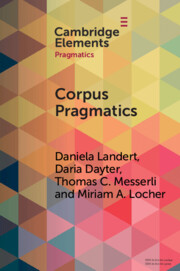Refine search
Actions for selected content:
1 results

Corpus Pragmatics
-
- Published online:
- 24 February 2023
- Print publication:
- 09 March 2023
-
- Element
-
- You have access
- Open access
- HTML
- Export citation
